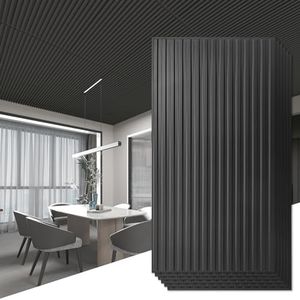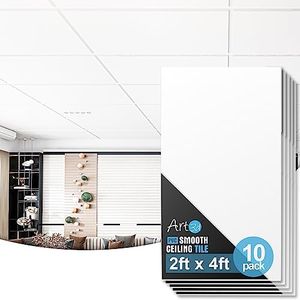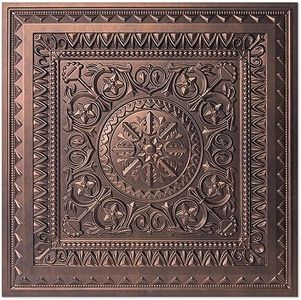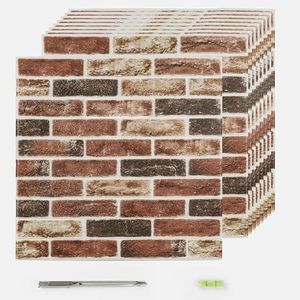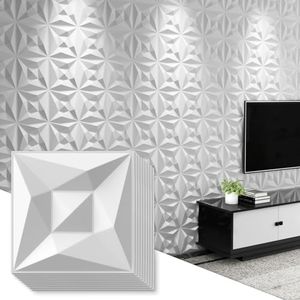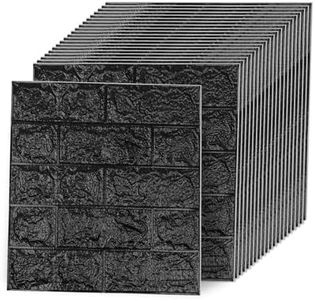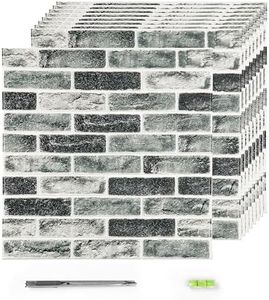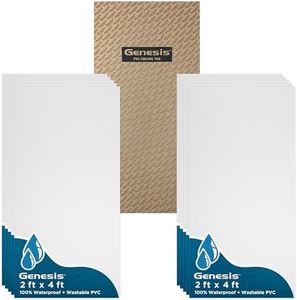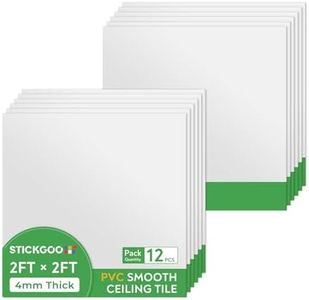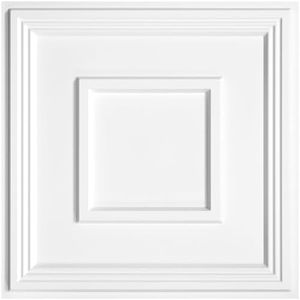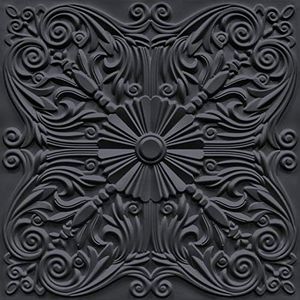We Use CookiesWe use cookies to enhance the security, performance,
functionality and for analytical and promotional activities. By continuing to browse this site you
are agreeing to our privacy policy
10 Best Ceiling Tiles 2025 in the United States
How do we rank products for you?
Our technology thoroughly searches through the online shopping world, reviewing hundreds of sites. We then process and analyze this information, updating in real-time to bring you the latest top-rated products. This way, you always get the best and most current options available.

Buying Guide for the Best Ceiling Tiles
Choosing the right ceiling tiles can significantly impact the aesthetics, acoustics, and functionality of a room. Whether you're renovating a home, office, or commercial space, it's important to consider various factors to ensure you select the best ceiling tiles for your needs. Here are some key specifications to consider when picking ceiling tiles and how to navigate them.MaterialCeiling tiles come in various materials such as mineral fiber, fiberglass, metal, and PVC. The material affects the tile's durability, acoustic properties, and appearance. Mineral fiber tiles are popular for their sound absorption and affordability, making them suitable for offices and classrooms. Fiberglass tiles are lightweight and offer excellent sound insulation, ideal for spaces where noise reduction is crucial. Metal tiles provide a sleek, modern look and are durable, perfect for commercial settings. PVC tiles are moisture-resistant and easy to clean, making them great for kitchens and bathrooms. Choose the material based on the room's requirements and desired aesthetic.
Acoustic PerformanceAcoustic performance refers to the tile's ability to absorb and reduce sound. This is important in environments where noise control is essential, such as offices, schools, and auditoriums. Acoustic performance is measured by the Noise Reduction Coefficient (NRC) and Ceiling Attenuation Class (CAC). NRC values range from 0 to 1, with higher values indicating better sound absorption. CAC measures the tile's ability to block sound transmission between rooms, with higher values indicating better performance. For spaces requiring high sound absorption, look for tiles with an NRC of 0.70 or higher. For sound blocking, a CAC of 35 or higher is recommended.
Fire RatingFire rating indicates the tile's ability to resist fire and prevent its spread. This is crucial for safety in both residential and commercial buildings. Fire ratings are classified by standards such as Class A, B, or C, with Class A offering the highest level of fire resistance. When selecting ceiling tiles, ensure they meet local building codes and safety regulations. For areas with higher fire safety requirements, such as kitchens and commercial spaces, opt for Class A rated tiles.
Moisture ResistanceMoisture resistance is the tile's ability to withstand humidity and prevent mold and mildew growth. This is particularly important in areas with high moisture levels, such as bathrooms, kitchens, and basements. Moisture-resistant tiles are typically made from materials like PVC or treated mineral fiber. When choosing tiles for damp environments, look for those specifically labeled as moisture-resistant to ensure longevity and maintain a healthy indoor environment.
Aesthetic AppealAesthetic appeal refers to the visual design and finish of the ceiling tiles. This includes factors like color, texture, and pattern. The right aesthetic can enhance the overall look of a room and complement its interior design. Ceiling tiles come in various styles, from plain and simple to intricate and decorative. Consider the room's decor and the desired ambiance when selecting tiles. For a modern look, metal or smooth, white tiles may be suitable. For a more traditional or decorative appearance, consider tiles with patterns or textures.
Ease of InstallationEase of installation refers to how simple it is to install the ceiling tiles. This can affect the time and effort required for the project. Some tiles are designed for drop ceilings, which are easy to install and replace, making them ideal for DIY projects. Others may require professional installation, especially if they involve complex patterns or materials like metal. Consider your skill level and whether you prefer a DIY approach or professional installation when choosing ceiling tiles.
Most Popular Categories Right Now


